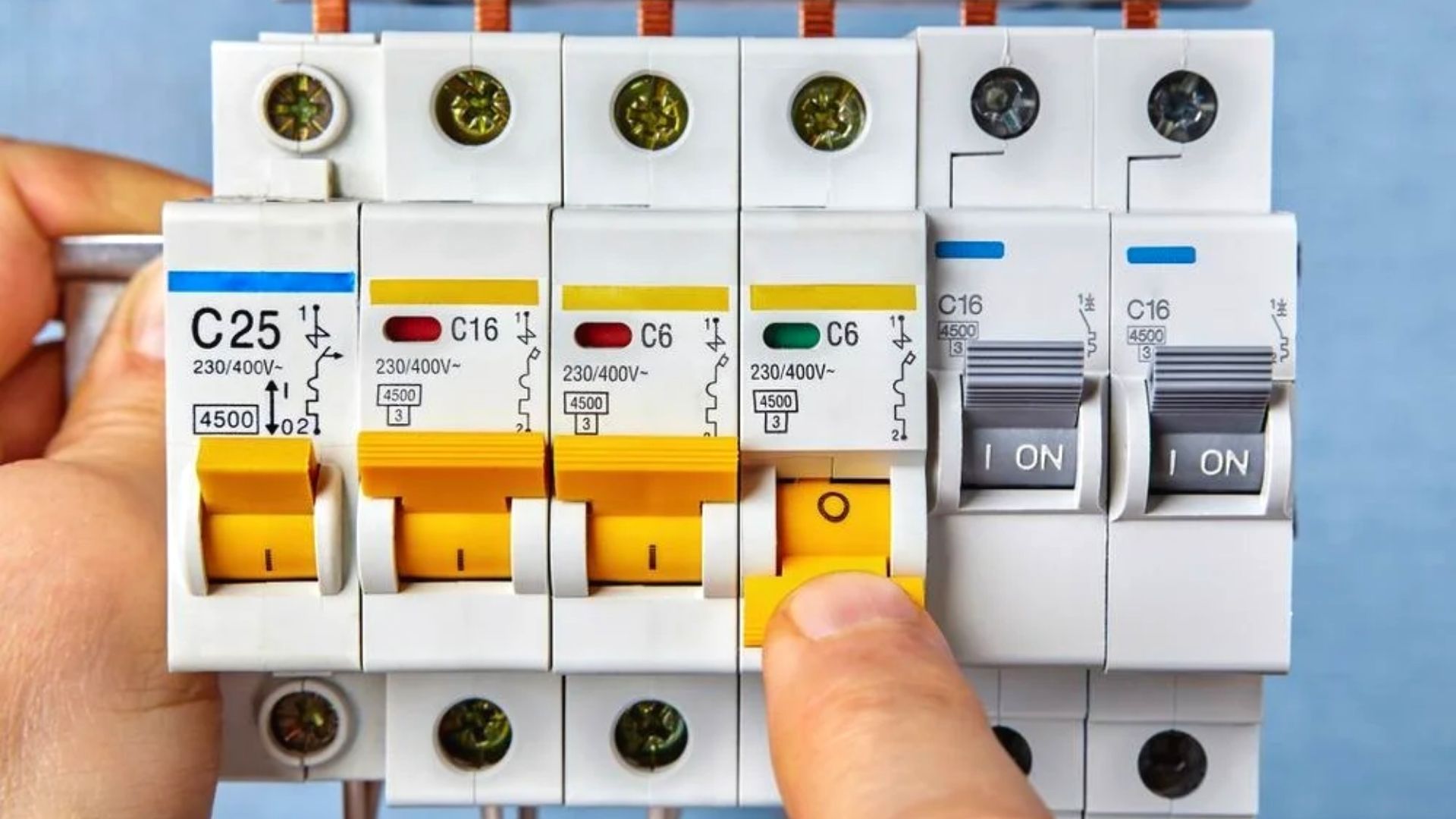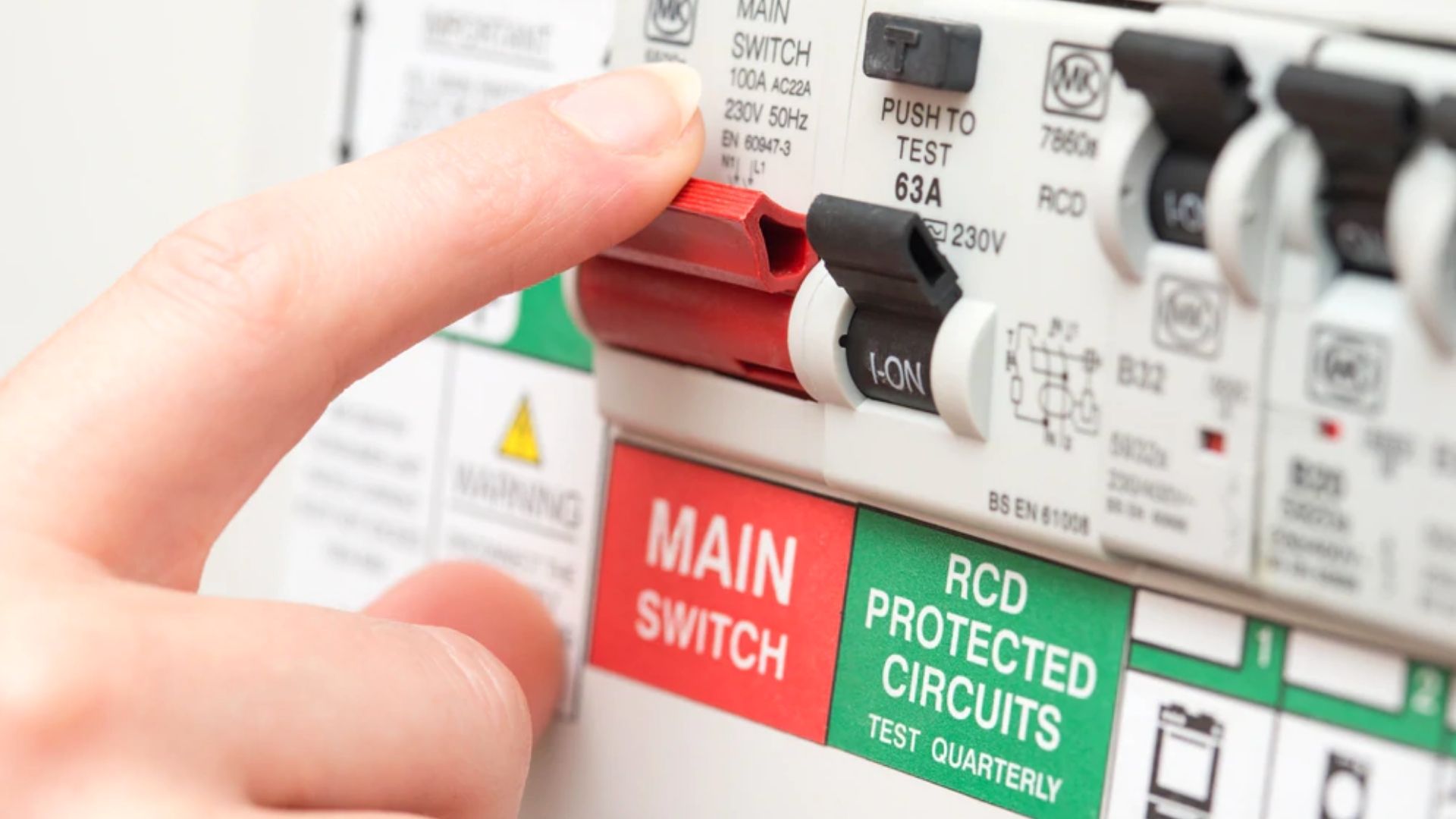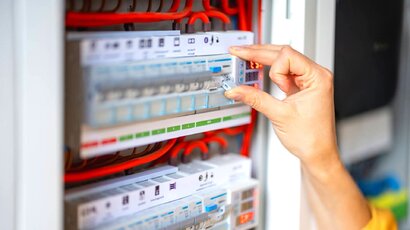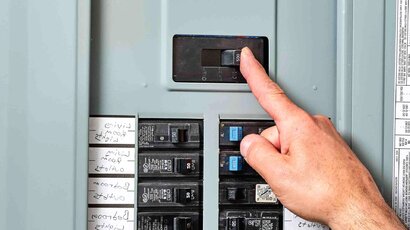Are you frustrated with your tripping circuit breaker? Then it’s about time you discovered why it keeps tripping and fixed it for good.
As you may already know, a circuit breaker is an essential device in your service panel designed to break or trip the circuit when it senses an overloaded circuit. It is one of the most efficient ways to safeguard your home from a fire.
You will likely have to call an electrician and have them fix the issue causing your circuit breaker to trip. However, there are quite a few easy ways to identify the problem on your own and even fix it.
We have discussed these methods in this guide, so let’s get started without wasting further time.
Let’s first get the basics straight so you don’t have problems understanding what could happen.
Your utility company provides electricity through a wire into your service panel. Once inside the panel, it runs through separate circuits (wiring loops), powering various outlets.
Every breaker present on the panel has an off/on switch and controls an individual circuit. When a tripped circuit breaker is automatically switched to “off,” it would help if you put it back on to allow electricity to run through the circuit again.

A short circuit is one of the most common causes of a tripping circuit breaker. This occurs when two wires ( that should not be touching each other) inadvertently come in contact. Additionally, a short circuit can occur in devices, switches, or outlets.
When plugging in a device with a short, you will notice that it will immediately trip the circuit. If you find out that using a particular device, say the vacuum cleaner, causes the breaker to trip each time you plug it in, consider plugging it in another room.
However, when the breaker of that particular room trips, know there is a short in the device. We firmly recommend not using the device till you fix it; otherwise, you might get a severe electrical shock. Also, stop using that switch or outlet if the circuit breaker trips every time you use a specific switch or plug your device into a specific outlet.
This happens when more electrical power flows through the circuit than it can handle. To investigate a circuit overload, go to your service panel the next time your circuit breaker trips and flick off all the switches in the troubled area. Also, be sure to unplug all electronic devices.
Put the tripped circuit breaker back on, flick on the switches and then turn on the devices. Now, stay there for a few minutes to check whether or not the circuit breaker stays in place. Every time you plug in a device or switch on a light, it causes more electricity to run through the cables.
Consider trying this experiment again if you notice that the circuit breaker trips even before plugging in any device. But this time, make sure you plug the devices into a different sequence. You will likely have to try this experiment quite a few times to understand the number of devices you can plug in simultaneously before overloading the circuit.
Circuit overload is a common cause of a tripping circuit breaker, like a short circuit. You can quickly stop it from occurring by ensuring that you are running fewer devices simultaneously on any particular circuit.
The long-term and perhaps the best solution would be to let a licensed electrician update your home wiring to add a few extra circuits.
When electricity travelling through your home wiring diverts from its intended course and passes via an alternative path to the ground, it is an earth fault. It can occur for various reasons, mainly when water from a leaky window or dripping pipe gets into a switch box or outlet.
As you know, water is a good conductor of electricity. So, when it comes in contact with damaged wires and wire connections, electricity jumps out of the circuit and follows the trail of water. This produces a spike in the electricity, causing the circuit to trip.
After the electrician confirms that it is an earth fault or ground fault that is causing your circuit to trip, locate and fix the water source. Also, the damaged wirings would have to be replaced.

We have finally reached the end of our informative article. And we hope that it has helped you gain some valuable insights into the causes of your tripping circuit and how to fix it.
If you don’t feel confident enough to try out the experiments mentioned above, don’t hesitate to contact a local electrician and have them find out the root of the problem. Even though it might take a little longer, you can rest assured that a licensed electrician will resolve the issue permanently.
For help with circuit breakers in Melbourne, call our team. We have experienced electricians at Precision Electrical & Plumbing who can quickly find and fix the problem with your breaker.
On that note, it’s time for us to wrap up. See you next time!
{{author:bio}}
Find them on their website: Precision Electrical & Plumbing, Facebook and LinkedIn.
Not sure about the differences between a safety switch and circuit breaker? We’ve got a quick guide to clear all your doubts about this topic. Learn more!
Read MoreAre you concerned about why your air conditioner is leaking? We have brought a detailed guide that may help you detect the issue instantly and how to address it.
Read MoreAre you keen to learn about the different types of circuit breakers and their importance? Read our guide as we detail the benefits and uses of each circuit breaker.
Read More


